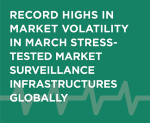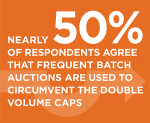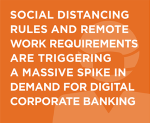Surveillance Technology Helps Firms Manage Volatility, Work From Home But Also Produces Tidal Wave of “False Positives”
May 12, 2020
Among the myriad challenges facing trading desks during the COVID-19 crisis is managing the huge number of “false positive” warnings from trade surveillance systems, triggered by massive swings in financial markets.










